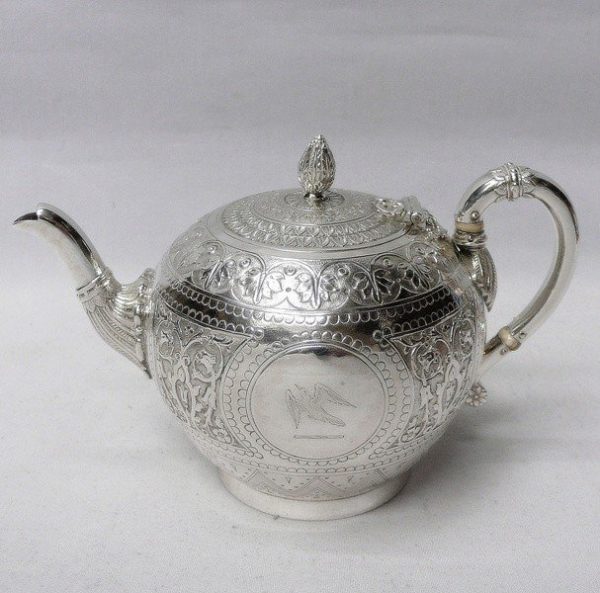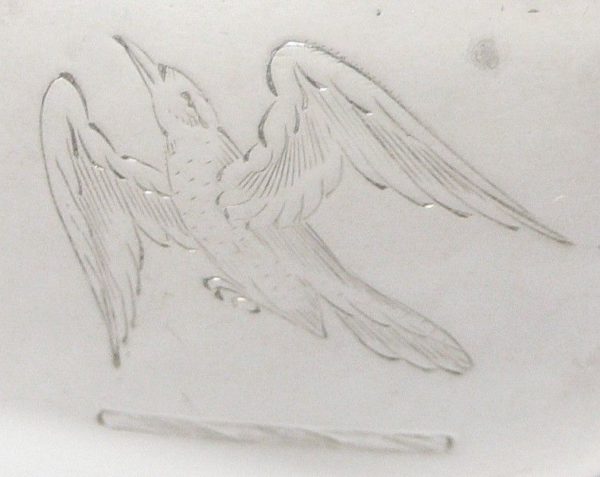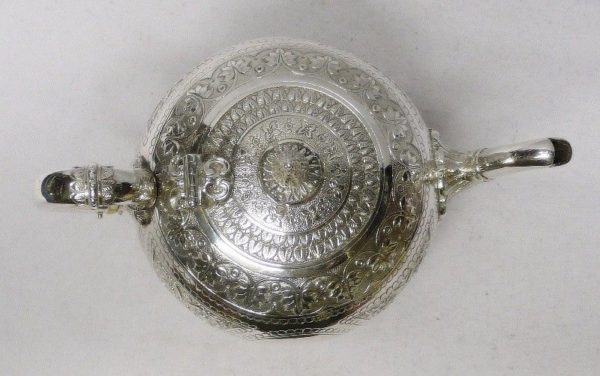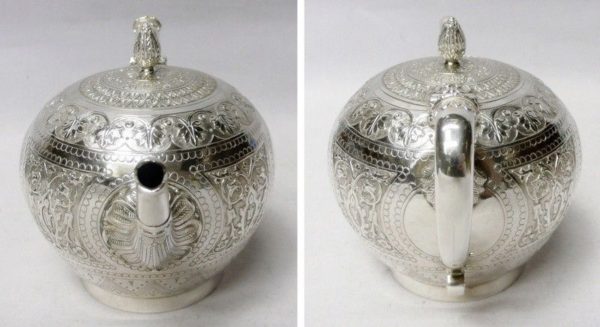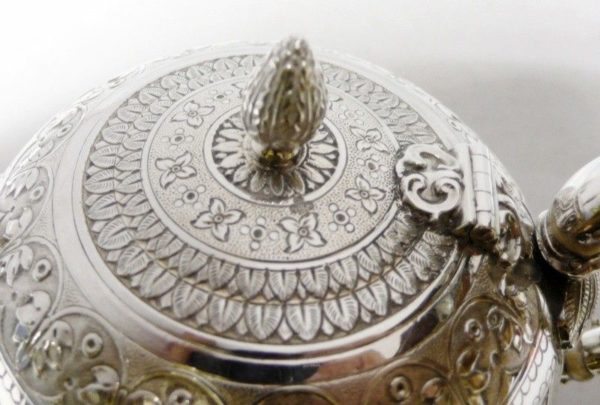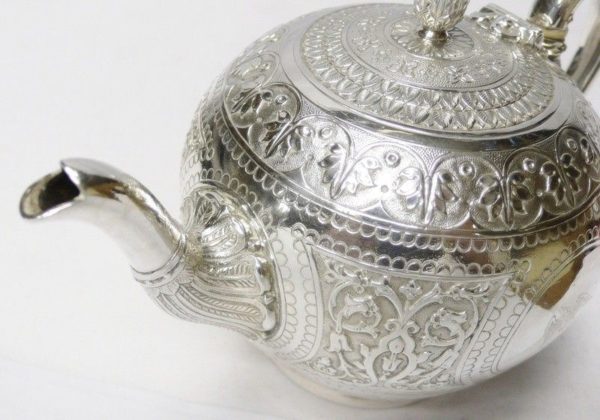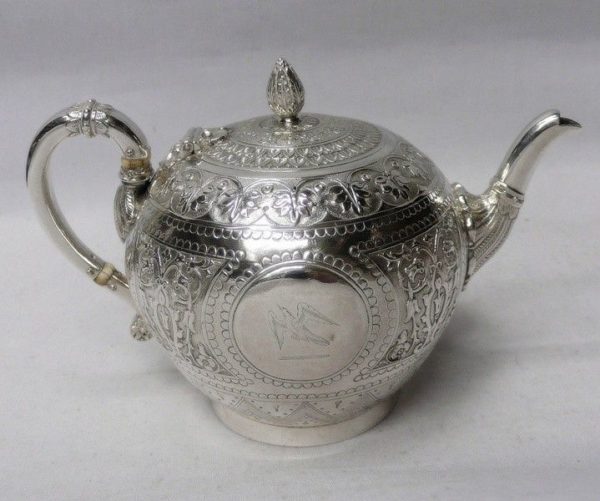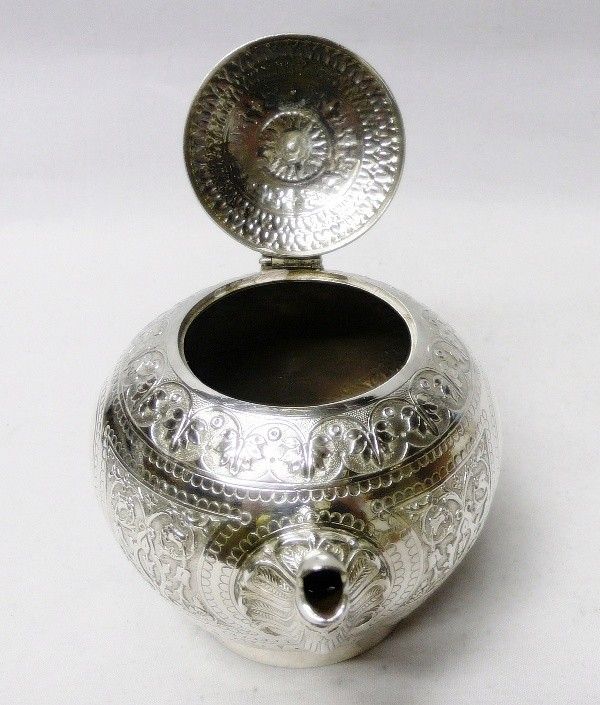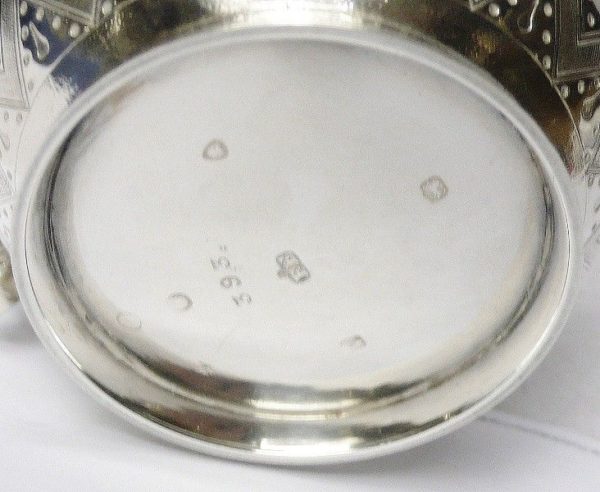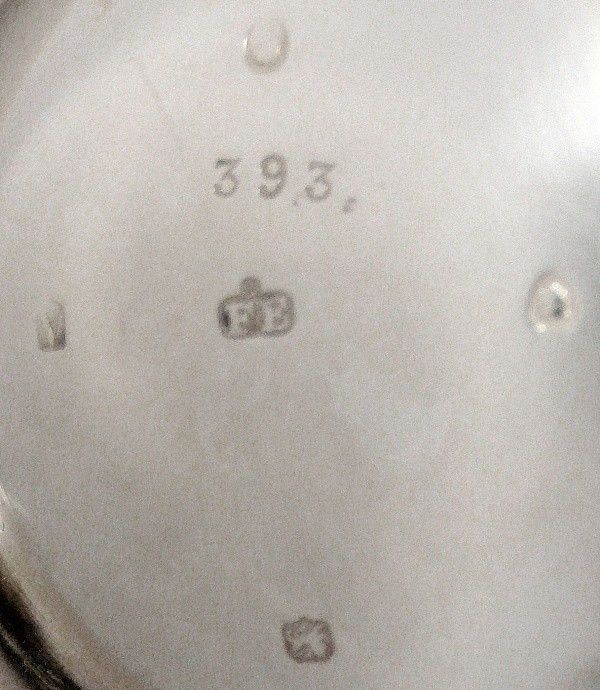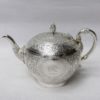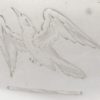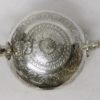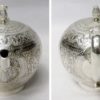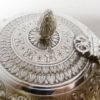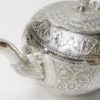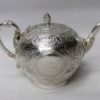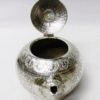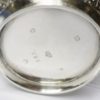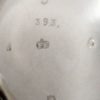Victorian Silver Bachelor Teapot by Elkington
SOLD
Stock: 8318
Date: 1876
Maker: Elkington
Country: England
A lovely little antique sterling silver teapot with hinged lid. Nice small size. Circular bullet shape and all over decorated...
Description
Description
A lovely little antique sterling silver teapot with hinged lid. Nice small size. Circular bullet shape and all over decorated with flower and leaf designs. Both sides have a hand engraved crest of a bird within a circular cartouche. Contains 500 ml. Weight 281 grams, 9 troy ounces. Height 11 cms. Spread 17 cms. Diameter of base 6.25 cms. Marked underneath for London 1876. Maker Frederick Elkington.
Condition
This pretty silver teapot is in very good condition with no damage or restoration. The decoration is still crisp. Marked underneath with a full set of clear English silver hallmarks, lid unmarked. Please note that this item is not new and will show moderate signs of wear commensurate with age. Reflections in the photograph may detract from the true representation of this item.
Maker Information
Maker: Elkington
George Richards Elkington, born in Birmingham, apprenticed to his uncles Josiah and George Richard’s silversmithing business in 1815 and on his father’s death c.1824 inherited his father’s spectacle manufactory. Until 1840 he continued in partnership with his uncles as Richards and Elkington, silversmithing and gilt-toy manufacturers, of Holborn, London, and St Paul's Square, Birmingham. Elkington had other concurrent partnerships: one with Joseph Taylor, a Birmingham gilt-toy maker, dissolved in 1839; another with his cousin Henry Elkington which began c.1836 and eventually became the firm of Elkington & Co. After George Elkington entered into partnership with his cousin Henry, the two men began experimenting with new ways of gilding base metals taking out patents for the application of electricity to metals. When, in 1840, John Wright, a Birmingham surgeon, discovered the valuable properties of a solution of cyanide of silver in potassium cyonide for electroplating purposes, the Elkingtons purchased and patented Wright's process (British Patent 8447 : Improvements in Coating, Covering, or Plating certain Metals), subsequently acquiring the rights of other processes and improvements. In 1843 Elkingtons acquired the rights to Werner von Siemens’s first invention, an improvement to the gold and silver plating process. The Elkingtons opened a new electroplating works in Newhall St, in the Jewellery Quarter, Birmingham in 1841, and the following year Josiah Mason, a pen manufacturer, joined the firm now named Elkington, Mason & Co. Mason encouraged the Elkingtons to add more affordable electroplated jewellery and cutlery to the large pieces the company had been producing. The agreement between Elkington and Mason was dissolved in 1861, after which the company traded as Elkington and Co. By the mid-1860s Elkington's employed nearly a thousand workers and was firmly established as the leading silver- and electroplate company in the world. George Elkington died in 1865. The business was continued by his sons, Frederick (d. 1905), James Balleny (d. 1907), Alfred John (d. 1910), Howard (d. 1899), and Hyla (d. 1901).
Our Guarantee
Customer satisfaction is our primary concern
All silverware on our website is checked thoroughly prior to offering it for sale and every product listing contains a condition report and details of the silver hallmarks.
All items offered on our website include:
- Free Shipping Worldwide
- Tracked and Insured
- 14 day no quibble money back guarantee
- We are accredited members of LAPADA and conform to their strict professional standards
- We dispatch 1-3 days after receiving cleared payments
More detailed information about deliveries, returns and how to pay is available in the Help section at the bottom of this page.
